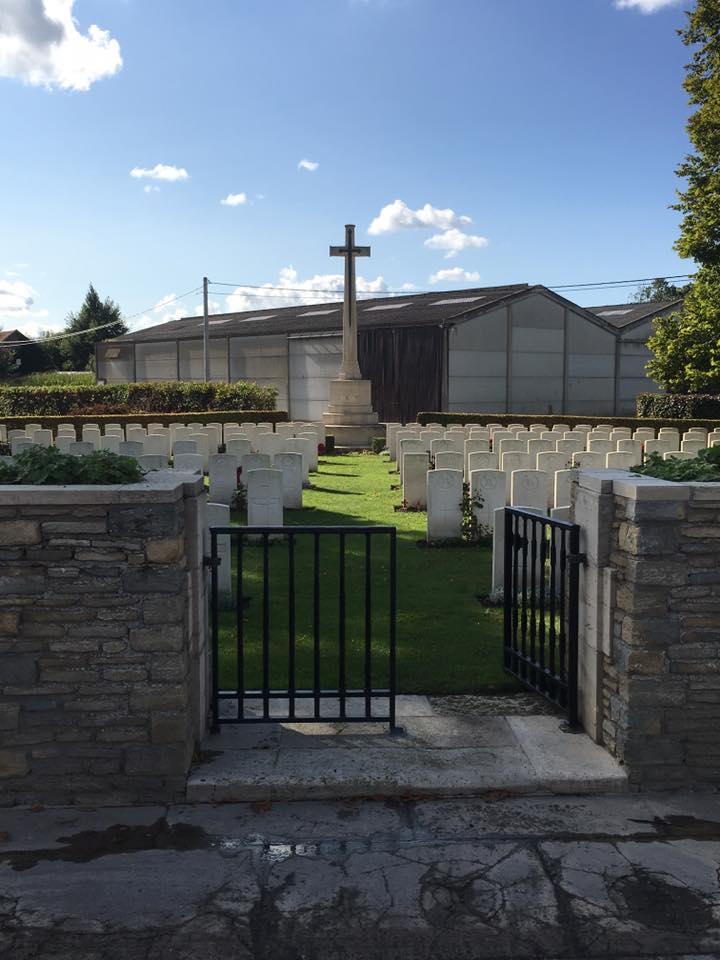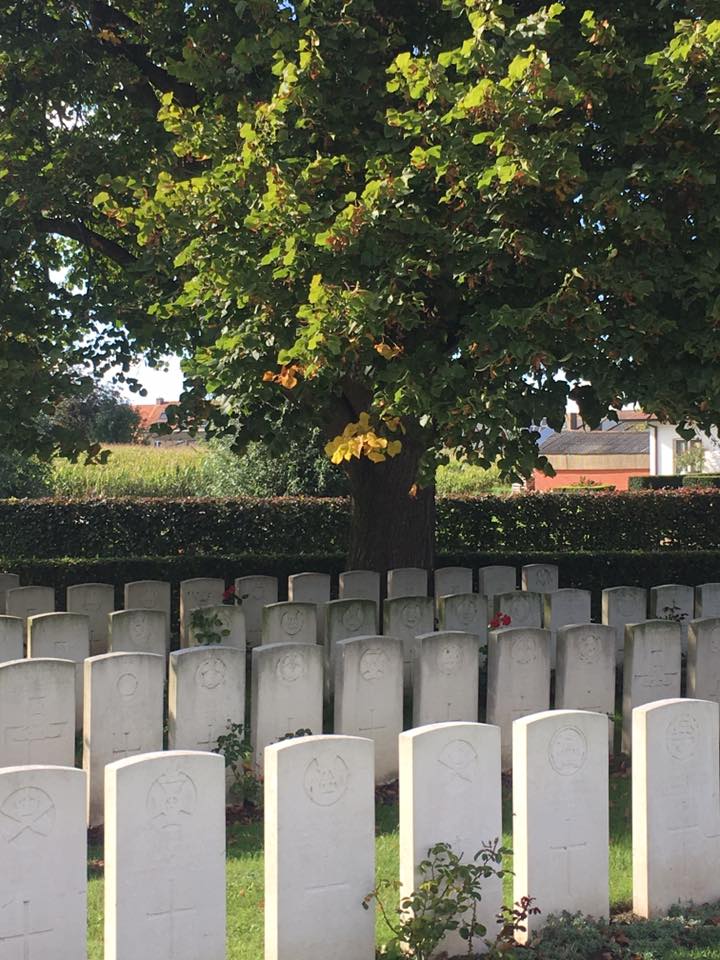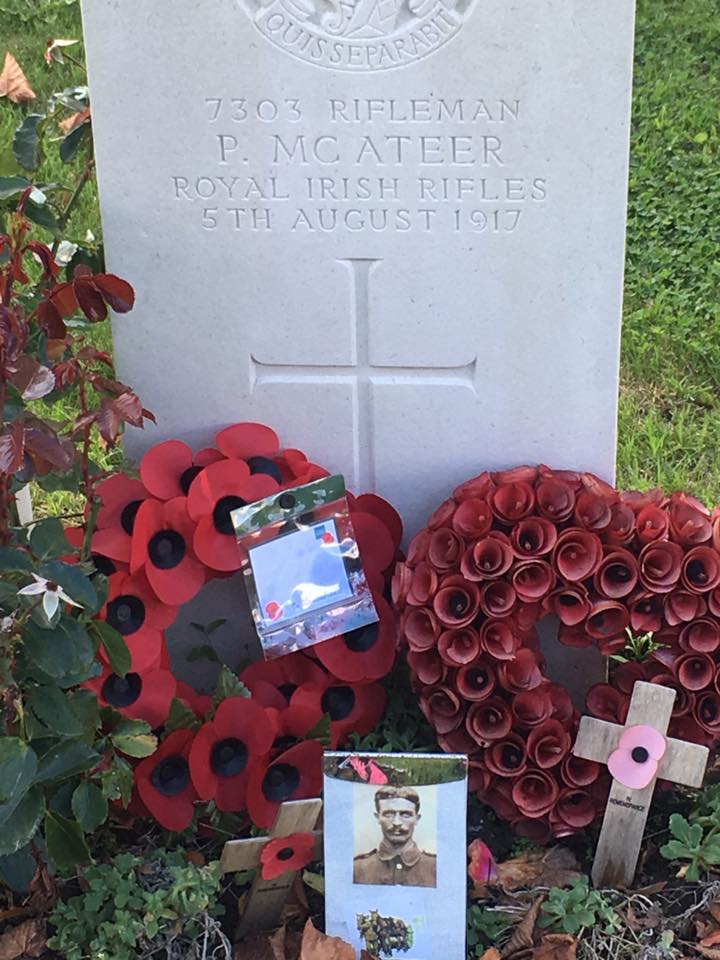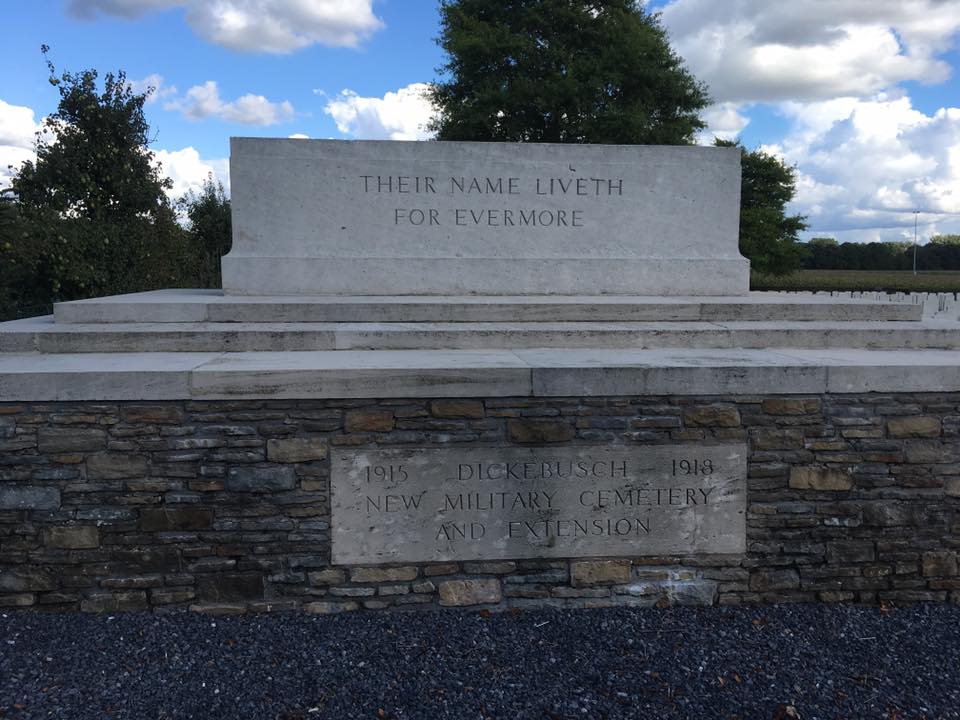In Flanders Fields, a man I never knew…
In a corner of a quiet war graveyard, down a street in an inconspicuous little town in Belgium, with fields of corn on one side, and storehouses crowding out the horizon on the other, there’s a grave. It’s the grave of a man I never knew. Who died before he even knew his own children that well. Someone from history, who’s name was rarely mentioned, to me, that I can remember, yet who’s face in the one photo image I have of him, looks vaguely familiar because I can see traces of other family members in his eyes, mouth and nose.

I didn’t know the man. He died just over one hundred years ago, as the war to end all wars raged and the slaughter of men of all ages continued, on bloody battlefields in France and Belgium.
I never knew him. But he died fighting for a country that technically wasn’t his, for the freedom I appreciate today.
I don’t know what kind of man he was, what kind of father he was, what kind of husband. I don’t know what he would have been if he had been a grandfather. I don’t know if he was kind, or what he felt about life.
I know he was Irish, Catholic, an immigrant to the land I now call “home”, and I know that he died just outside Ypres on the 5th August 1917. When I read the documents that were issued at his death and burial, the address details are familiar. The house he lived in was a place I remember visiting, long after he died, when I was a child, with vague whispers of the woman who was his wife still there and the family who lived there afterward, my own family, great aunts, uncles and distant cousins.
I cried, at the grave of a man I never knew. I had felt strangely disconnected from who he was, whilst I found out about him, and who he was and where he was resting. I was interested in the history of his life, and realizing that a piece of my genetic connection had fought and died on a battlefield famous in history books. I didn’t feel emotional until I stood over the stone where he lays, in a row, among many rows of men who also died and lie in a rather out of the way spot. I cried for the loss. He never saw his children grow up. He never fathered or grandfathered. He didn’t grow old among the people he loved. He was much younger than me when he died. He, like so many, were sacrificed for a cause no one really understood but stood for it anyway. He wasn’t rich, well educated, he didn’t seem to leave a legacy.

Except he did.
He was an Irish Rifleman. He was also my great grandfather. I am his legacy, my children are his legacy. His other children, grandchildren, and great-grandchildren were and are his legacy. He never knew any of us, but we are here. I suspect his political and religious beliefs would not match my own, but he is part of my history. I am grateful for the sacrifice he made, in a time now past.

I cried at the grave of a man I never knew, who died so long ago in a war-torn field in Belgium.
We must never forget those who gave their lives on the fields of blood in that war that saw the loss of so many.

What a beautiful, poignant post. Less we forget.